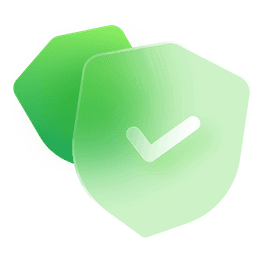Cybersecurity refers to the utilization of tools, technologies, and practices in order to protect or defend internet-connected devices from cyber threats, unauthorized access, and malicious attacks. The devices include a variety of systems, mobile phones, databases, networks, applications, and software. The threats in the digital world don’t only consist of hackers looking for sensitive information or monetary gains, it can also be a politically driven threat by other countries or even competitors, and it can be an APT (Advanced Persistent Threat) campaign on the compromised system referred to as cyberterrorism.
Updating the security software- it is essential to always remain up to date with the latest security updates for your operating system or application installed as it updates the security patches, eradicates any bugs, and addresses essential vulnerabilities.
Using antivirus software- an effective technique to scan and block all malicious files or the applications downloaded from the web is to use trusted and certified Antivirus software. Antivirus programs run routine checkups and scans of the files in the system and can easily filter any compromised drive or device connected to the system.
Using a firewall- a firewall is also an essential need for cybersecurity as it acts as a boundary to malicious network traffic, hackers, or viruses (like trojans or RATs (Remote access tool)) trying to enter the system.
Avoiding unsecure connections- whether it is the mobile device or your laptop, it is highly recommended to avoid connecting to public Wi-Fi without a password, or if there is a need, you must use a Virtual Private Network to keep the connection encrypted and reduce the risk of unauthorized access from the server.
Avoiding social engineering tactics- Hackers and attackers now pay less heed to penetration methods and focus more on exploiting someone through social engineering. It refers to gaining access to the system or sensitive information by acting as a known person to the victim, i.e., their friend, office colleague from the IT department, or the boss, to push someone to share their password or account details.
Using MFA (multi-factor authentication)- one of the essential tips for the cybersecurity of the system and devices is to use multiple layers of security. A single password can be easily compromised; adding additional authentications, i.e., biometric, codes, and private keys, can keep your system safe from threats.
Avoiding any links or malicious files- during your online activity, you must avoid clicking unwanted and advertisement links on websites and refrain from downloading files from non-trusted websites.
Securing the passwords- It is essential that you never reuse an old password, choose a password with a combination of numbers, characters, letters, never use the same password for all devices and frequently change or keep updating it.
Using password management tools- an important tip for beginners to the digital world is to utilize password management tools or vaults to save their passwords and generate unique codes in order to avoid remembering passwords to all your accounts.
Keeping the backup of data- As hackers now encrypt all your data and demand heavy ransom, which cannot be a viable option. Frequently creating a backup of your data and even storing one copy in a drive is a better option.
Avoid leaving your device unlocked- even in a professional setting, you should not leave your mobile device and laptop unattended and unlocked as it is the easiest way an insider can break into your system and steal sensitive data.
Remain updated to the latest cybersecurity news- Hackers and cybercriminals keep on mastering new techniques and use different attack vectors. Keeping yourself up-to-date with the latest security trends and news will make you more vigilant and attentive to any attempt.
Get acquainted with cybersecurity measures- If you are a remote worker, have a business, or working on your own startup, it is recommended that you take essential courses for learning modern techniques regarding cybersecurity and protection of your business and the important data.
Keeping an eye on your digital activities- In order to remain updated and avoid any malicious attempts from cyber hackers, you should monitor your accounts to point out any action, delete unnecessary private information from your accounts and deactivate the accounts you do not use.
Securing mobile devices- Mobile malware is one of the top reasons behind any cyberattack or hacking technique. It is recommended to secure the mobile devices by not downloading applications directly from the web, avoiding sharing account and personal details through message or email, installing device manager tool, and keeping a regular backup of all the important data. You should also take all the security measures you would take in the digital environment for your mobile devices.
If you think, you can handle from now on, here are the solutions you can use to keep track of your digital asset security:
- S4E:Shelter | Automated Vulnerability Scanning Tools
- S4E:Equality | Free Vulnerability Scanner
- S4E:Solidarity | Vulnerability Scanning API
- S4E:Education | Cybersecurity Awareness Test
If you'd like to take your security to the next level but don't know how, contact with us from here so we can guide you. Security for Everyone has a team of cybersecurity experts who have 35+ years of experience collectively. Reap the benefit of this expertise to keep your assets secure from now on.
Here are what our team can offer to you:
- Mobile Application Penetration Testing Service
- Web Application Security Testing Service

control security posture
